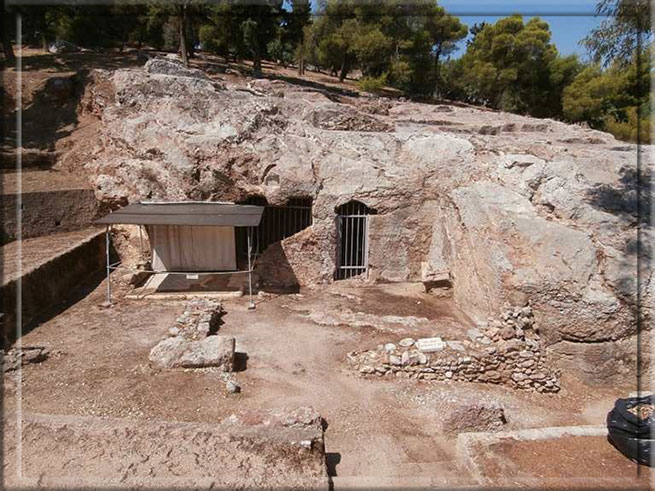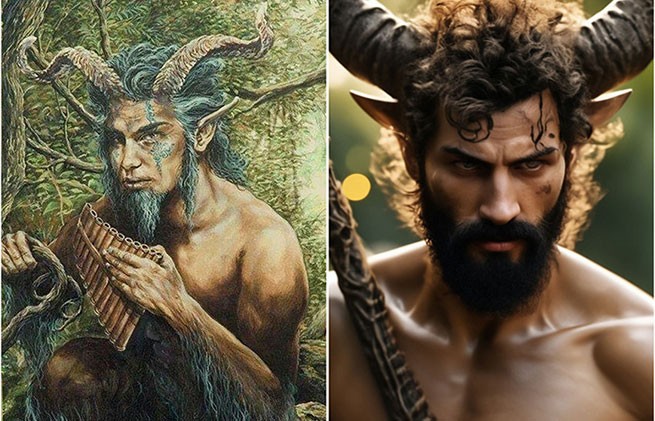The ancient Greek god Pan occupied a very important place in the ancient divine pantheon. He was considered the patron of all nature, protecting shepherds, flocks, fields and forests. He was depicted as half-goat, half-man, with horns and hooves like satyrs.
The Greeks believed he was born in Arcadia, an idyllic rural kingdom – the perfect home for such a deity. So what was the enigmatic Pan, the only mythical creature whose death is documented in historical texts, really like?
Who is Pan?
In Arcadia he was most revered. Pan's cries could instill sudden fear in travelers who disturbed his peace, hence the term “panic”.

Statue of Pan at Columbia University, New York.
He is first mentioned in literature in an ode by the poet Pindar. As a village god, Pan had no temples, he was not worshipped in luxurious buildings, but always in a natural environment, such as caves or grottoes. One such cave still exists on the northern slope of the Acropolis. There are only two exceptions: a temple in the gorge of the Neda River, southeast of the Peloponnese, the ruins of which are still visible, and another in ancient Apollonopolis Magna (modern Edfu in Egypt).

The cave of the god Pan under the Acropolis of Athens.
The cult was very widespread. Pan was worshiped throughout Greece. In the Hellenistic era, this god was very closely associated with various mystical practices. In the Roman pantheon, there is a similar god of nature and forests, Faun, who was often confused with the Greek Pan.

Pan and Hermaphrodite, ancient fresco from Pompeii.
The only god whose death is documented in historical texts
Pan is the only god in Greek mythology whose death is attested in historical sources. This was written by the ancient Greek philosopher and historian Plutarch in his works. His work, written at the end of the 1st century, contains an account of this event, which took place during the reign of Emperor Tiberius. It says that a sailor from Egypt named Thamus was sailing in his boat past the Echinades Islands (in the Ionian Sea, at the entrance to the Gulf of Corinth). Suddenly, a mysterious voice called him. It said: “Thamus, when you reach Palodes, announce that the great god Pan has died.”

Roman ship in a sarcophagus from the end of the 2nd century AD.
The sailor carried out this terrible order. When he announced the death of Pan, the locals raised a terrible cry and weeping. The tragic news spread throughout Greece, and mourning was declared among the believers of the cult of Pan. Plutarch describes all this in great detail in his work “On the Failure of Oracles.”
The beginning of a new era
Plutarch is the only source that mentions Pan's death. In light of this, several theories were born. In particular, Christian historians declared that all pagan gods were dead. The basis for this was that the word “pan” in Greek means “all.” Therefore, the news was not that Pan had died, but that all the gods had died.

Pan in a painting by Georg Jenny (1922).
There is a grain of truth and some symbolism in this. After all, the event described by Plutarch took place around the first half of the 1st century. Therefore, we can conclude that monotheism defeated polytheism, and Christianity prevailed over paganism. The era of mythical heroes came to an end, and a new era began. History began to write a new chapter.
An interesting theory is also put forward by some Christian historians. They suggest that Plutarch's story is not about Pan, but about Jesus. During the reign of Emperor Tiberius, news of Christ's crucifixion arrived. After all, for Christians, Jesus was everything, so the sailor's words can be interpreted in this way. Other philosophers, on the contrary, say that Pan died precisely because Jesus Christ was born. However, when the geographer Pausanias traveled through Greece in the mid-2nd century, he discovered that Pan's sanctuaries, caves, and sacred mountains were still visited by his worshipers, especially in Arcadia.

Sanctuary of Pan on Pnyx Hill in Athens.







More Stories
How a cuckolded husband in Ancient Greece paid for his wife’s betrayal and what does the donkey have to do with it?
On this day, Koukidis sacrificed himself to stop the Nazis from desecrating the Greek flag.
57 years ago, a junta of black colonels came to power in Greece.